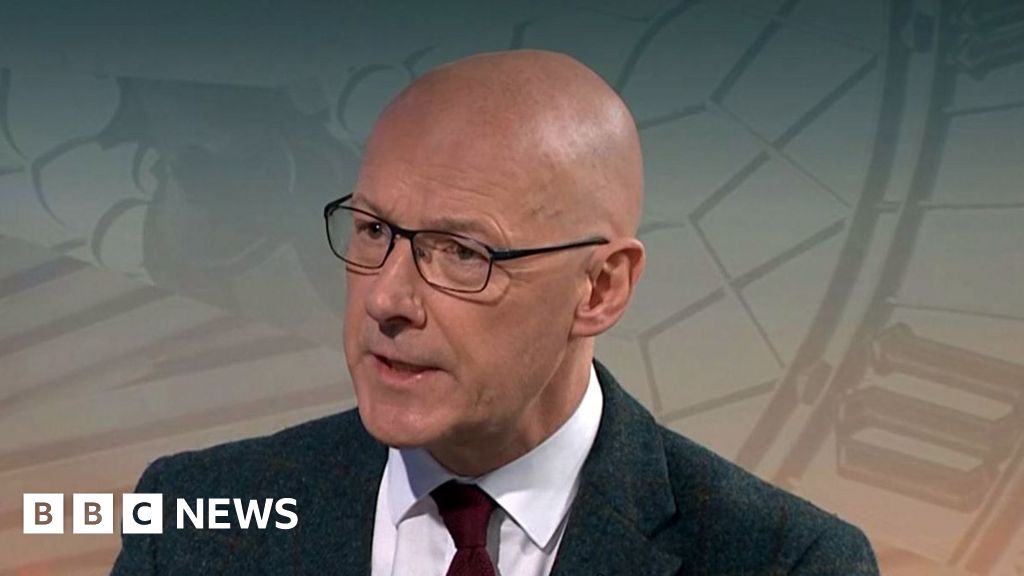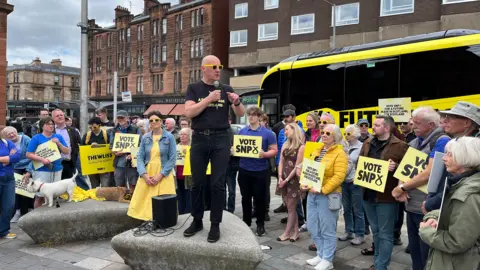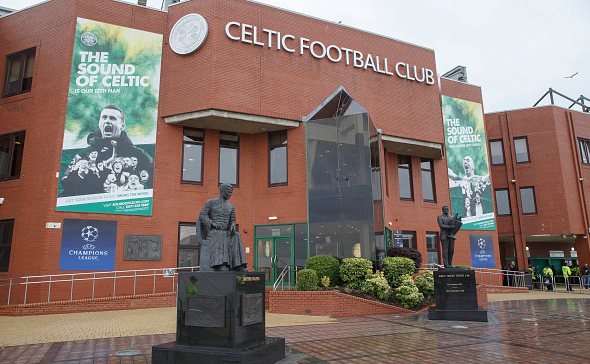Bussiness
John Swinney: SNP would work with Labour to boost migration to Scotland

By Calum Watson, BBC Scotland News
SNP leader John Swinney has said he would work with an incoming Labour government at Westminster to boost immigration to Scotland.
He told the BBC’s The Sunday Show he would welcome and engage positively with any plan to use immigration to address skills and workforce shortages.
Scottish Labour’s deputy leader Jackie Baillie has told the Herald on Sunday her party would look at ways to “incentivise” migrants to the UK settling in Scotland.
But Mr Swinney cautioned that Labour had taken a “very hostile” attitude to immigration south of the border.
“Keir Starmer and Yvette Cooper are on every UK television channel saying they are going to shut the door on immigration,” he said.
Migration has been a major issue of the election campaign with both the Conservatives and Reform UK saying numbers coming into the UK are too high.
Labour has promised to reduce net migration, clamp down on illegal trafficking and reform the points-based system for visas.
Research suggests it is less of an issue for Scottish voters where the proportion of working age adults is shrinking and sectors like agriculture, the care sector and hospitality have voiced concern about recruiting staff.
Four years ago the Scottish government proposed a pilot scheme for a “Scottish visa” which would exempt certain businesses from UK rules on hiring overseas workers, but it was blocked by the Home Office.
Mr Swinney said he welcomed reports that Labour, if elected, might work with the Scottish government to ensure UK policy recognised Scotland’s particular needs.
“If it’s an indication of some of the practical steps that might come from inter-governmental relations with an incoming Labour government, then nobody will engage in that more strongly than me,” he said.
He added that prior to the SNP coming to power in 2007, his party supported the “fresh talent” initiative developed by the Labour/Lib Dem coalition at Holyrood.

In wide-ranging interview, Mr Swinney attacked both the Conservatives and Labour for a “conspiracy of silence” over the crisis in public finances.
He repeated his claim – denied by Labour – that it would introduce £18bn of cuts by signing up to the same fiscal rules as the Tories.
Mr Swinney has called for Scotland’s higher taxation rates for higher earners to be emulated across the UK to finance more public spending.
Currently people in Scotland earning below £28,850 pay slightly less tax than the rest of the UK but above that figure they pay increasingly more.
The SNP leader said more tax powers should be devolved to Holyrood, including the ability to set the VAT rate, currently at 20%, but he declined to be “boxed in” by saying how his government might use that power.
He said he took responsibility for services like the NHS and education which are devolved to the Scottish Parliament, but he said it was also his duty to explain the financial constraints his government was operating under.
He said: “I don’t have 100% control over the money that’s raised in Scotland.
“I’ve got control over part of it – I take responsibility for that and I explain what we do with that. That’s why we’ve increased the tax on higher earners.
“But there’s a huge wad of the resources that come to us through the block grant that I do not control and I think it’s only fair that I give the public an explanation that the UK political parties have signed up to an approach that will cut our public spending.”


On Scottish independence, he was asked if a victory in Scotland for Labour – which opposes another referendum – would be a signal that the matter should not be pursued for the next five years.
Mr Swinney said it was a “complex question” because he believes the result of the 2021 Scottish Parliament election, which returned a majority of pro-independence MSPs, provided a mandate that “should be honoured”.
Mr Swinney also denied that the launch of the SNP campaign bus in just the final week of the campaign was a sign of the party’s declining fortunes.
He said he had taken a decision to deliver a final push for votes and it would have been a “waste of money” to have a campaign bus for the whole six weeks.
He acknowledged that the SNP had been through a “tough time” recently but said he had succeeded in bringing the party back together since he took over from Humza Yousaf shortly before the general election was called.
“In that time I’ve united the Scottish National Party, I’ve got the party focused outwards on a positive election campaign about providing hope and an alternative to the straitjacket of Westminster control in Scotland,” he said.
The Scottish Conservatives said the election was a chance for voters to end the SNP’s ongoing pursuit of Scottish independence.
Deputy leader Meghan Gallacher said: “John Swinney can try to dupe voters all he wants, but independence is ‘page one, line one one’ of the SNP manifesto for a reason.
“He will use every SNP MP elected on Thursday to try to split up the UK.”
Scottish Liberal Democrat leader Alex Cole-Hamilton said the SNP had failed to take responsibility for the state of public services after 17 years in power.
“This interview showed the SNP have been in power for too long and have nothing to say for those waiting for a GP or a dentist,” he said.
“They have nothing to say for those concerned about schools slipping down the rankings, and nothing to say about the Scottish government-owned water company dumping sewage in our rivers.”











